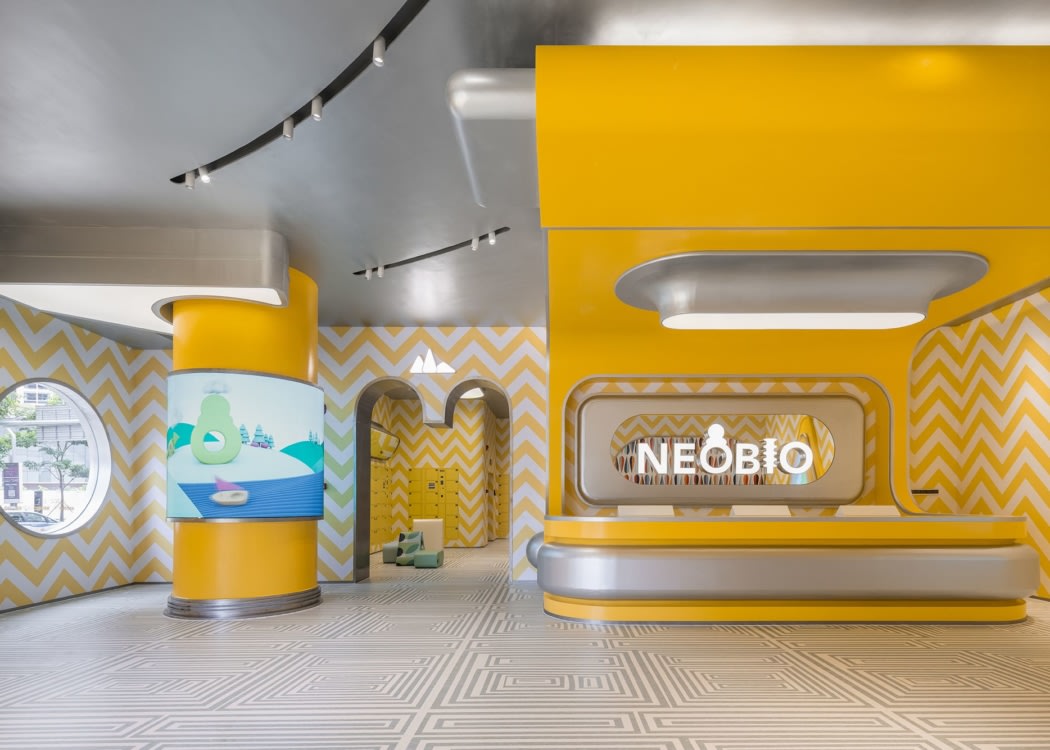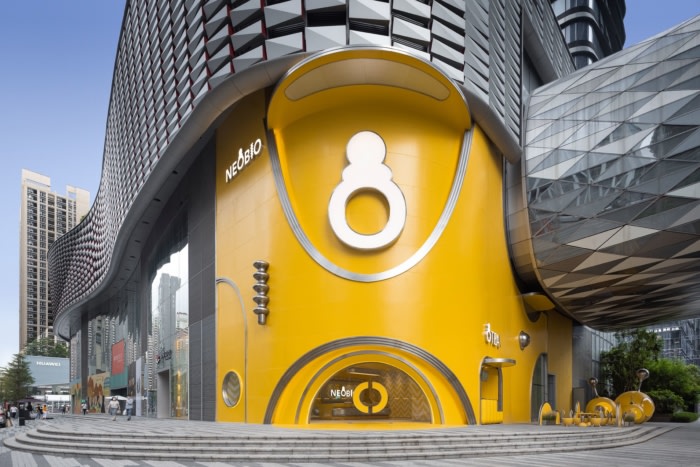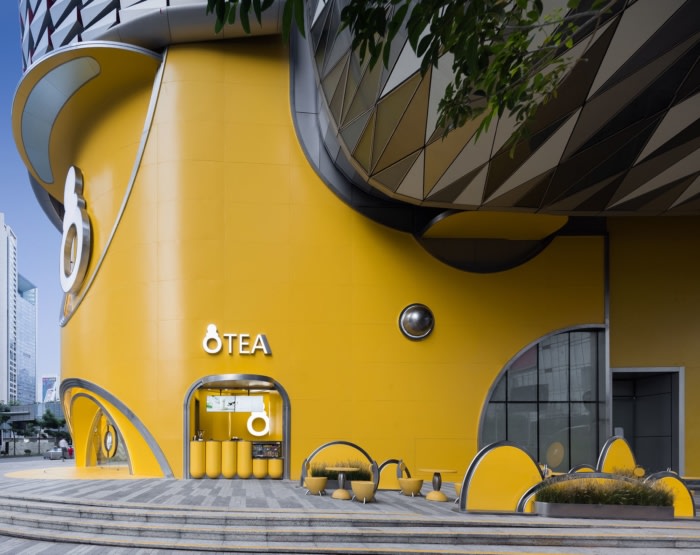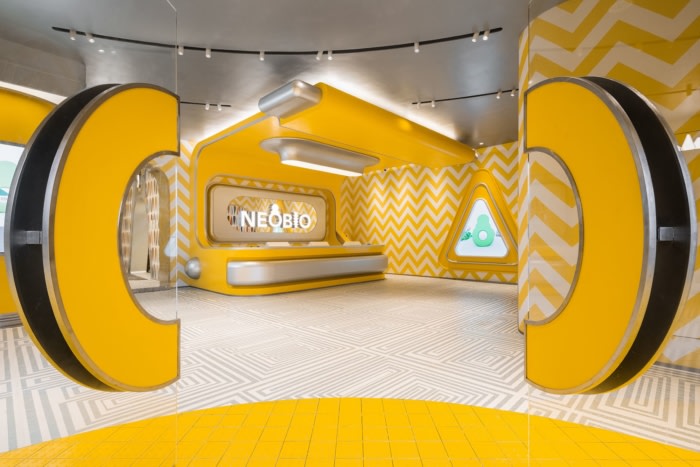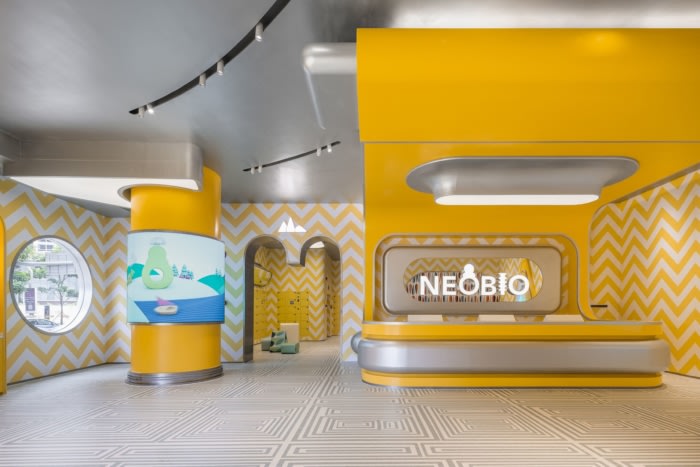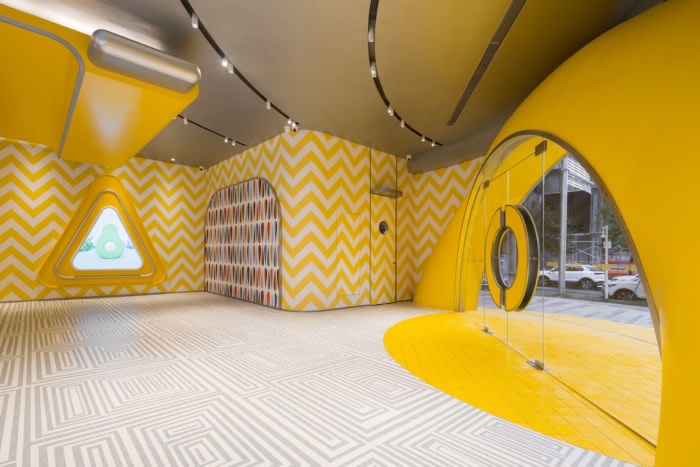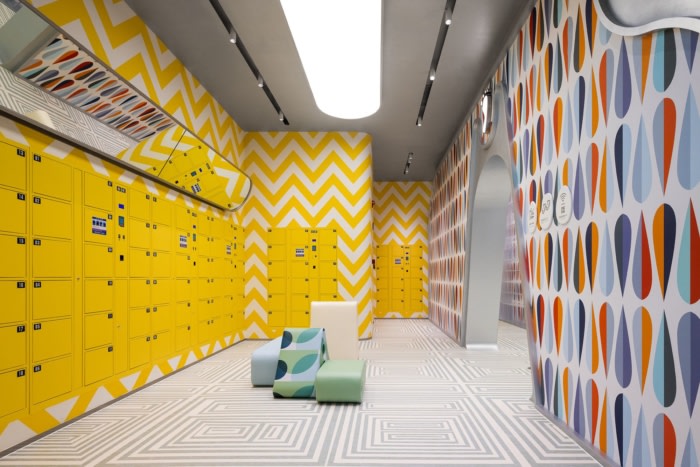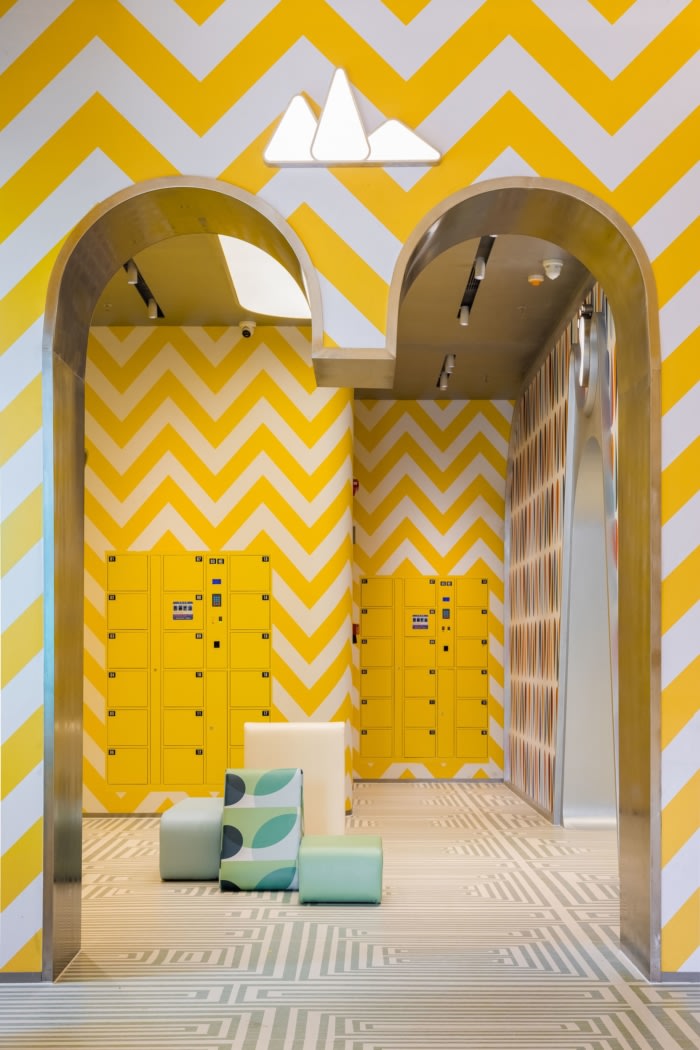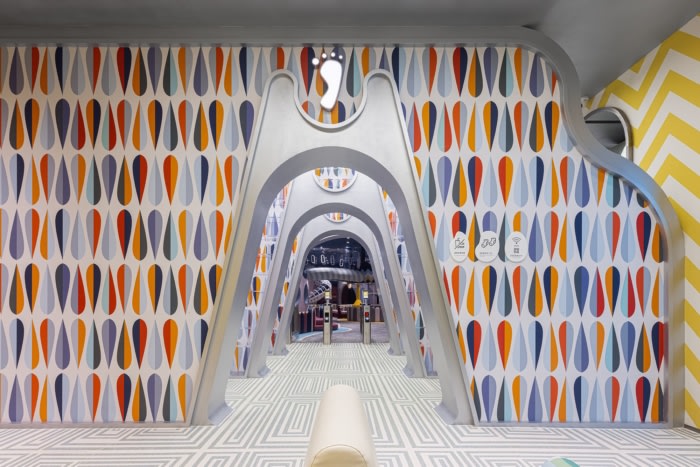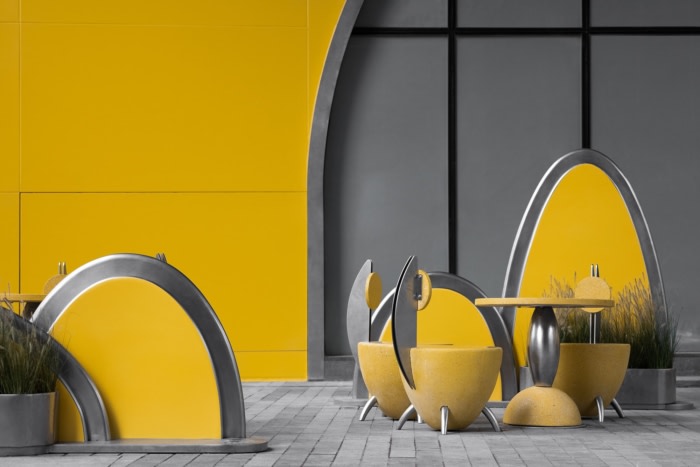NEOBIO Shenzhen
PIG DESIGN created a space for life and growth for both children and adults at NEOBIO located in Shenzhen, China.
The city is a system of intertwined networks within a limited area, meticulously interlocking and overlapping and dispersed. As history advances and cities expand, the form of architecture is changing. Early architecture served religion, power and wealth, and elites. Today the form of architecture and the objects it serves are changing, more diversified, subdivided, with the gradually-blurring functional boundaries, and the constantly-changing subjects of application.
Parasitic architecture
The project is located in the southeast corner of Center of One Avenue in Futian District of Shenzhen. In the densely populated Shenzhen, a clever parasitic relationship is formed between the buildings of NEOBIO and this 280,000-square-foot commercial complex, and the assembly of the two forms a mutually harmonious symbiosis.Color gamut manifesto
Yellow is the mid-frequency part of the visible part of electromagnetic waves, and what lies beneath the large yellow color gamut is a continuous humanistic exploration of “life and growth”. The “social family unit composition” is explored in the color counterpoint.The wall installation at the entrance is adapted from the “I” character of NEOBIO’s English logo, which is a juvenile tree modeled, indicating the information and order of growth.
The outdoor extension space is a set of installations, and this set of cellular water droplets foreboding the cellular reproduction, duplication and division of the vitality of life, represents the beginning of renewal and change — the cellular mimicry of growth, change and division echoes the architecture mutually.
The thick terrazzo metal tables and chairs, and the semi-circular hillside grass landscape reinforce the juvenile gene in the space, forming an organic combination of natural and unnatural with the surrounding greenery. The architecture is no longer bound to traditional forms, and the foundation of the juvenile gene is based on the seamless integration of natural details.
Healing of time
Time is an illusion. For children this space means growing up, and for adults it is where they can go back to their childhood. At this moment, the crack in time between adults and children is healed.The boundary between reality and illusion becomes blurred, as if we are in a fictional story. The social nature of the “human” at the moment is weakened and replaced by the immediate feeling of the moment. After temporarily forgetting the burden of social identity, the space begins to enter a more purely family moment…
“Love” is a wound of time, which is constantly lengthened in the process of human growth. Walking through this shoe changing area, we shake hands and bury the hatchet with ourselves and past ourselves, and the subsequent happiness is only an “accessory” of this space.
Children, who are supposed to be the future of the city, should feel the city’s love for them here, learn to care and love their friends, and cherish the time they spend with their families!
The eraser of memory
Time is an eraser, erasing the prosperity of the daytime, bringing in the dispersion of the night. As the day fades out, everything of the amusement park returns to zero, and the departing people are burned on the pleasure of the day, waiting for the coming arrival, such as the flower of the seasons, not only limited to the replacement, but more about the passing and superimposition of the information.
Design: PIG DESIGN
Design Team: Zhu Yiyun, Yan Junjun, Yang Zhiwei, Chien Simone, Liu Chao, Xiong Jun, Gao Ya, He Di, Tan Shijie, Wu YiCheng, Xiao Fei, Shao Xindi, Zhao Lili, Shen Taotao, Fan Kaiqi, Xiao Mengmeng, Chen Liang
Photography: SFAP

